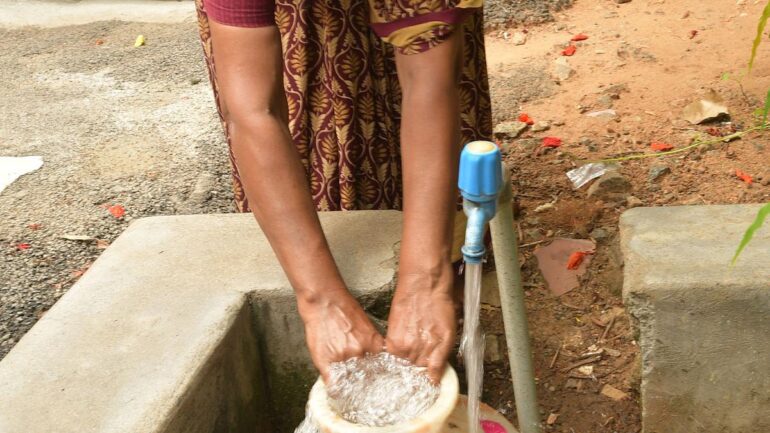TL;DR:
- Tiruchi Corporation partners with MoHUA and a French firm for an AI-driven water management project.
- Aims to reduce non-revenue water and prevent leakages using AI technology.
- Focuses on advanced tech and strategies to curb physical water losses.
- Facilitates the phased implementation of a 24×7 water supply.
- Emphasis on addressing pipeline and valve leakages.
- Plans to increase individual water supply connections for higher revenue.
- Streamlining non-revenue water supply connections city-wide.
- Aims to reduce total water supply wastage from 35% to 15%.
- A potential model for efficient urban water management.
Main AI News:
Tiruchi Corporation, in collaboration with the Ministry of Housing and Urban Affairs (MoHUA), has embarked on an innovative endeavor to revolutionize drinking water distribution in the city through cutting-edge artificial intelligence (AI). This visionary initiative, sanctioned by MoHUA, recently convened a preliminary review meeting to gauge the prevailing conditions and objectives of the AI-based water loss detection technology project.
This pioneering venture, in partnership with the municipal administration department, MoHUA, and a renowned France-based company, will harness the capabilities of AI to create a comprehensive solution for astute water resource management. The cornerstone of this solution lies in the application of artificial intelligence tools, meticulously designed to identify and mitigate water leakages within the distribution network.
The overarching goal of this project is to significantly diminish non-revenue water by leveraging advanced technologies and strategic management techniques, thereby mitigating physical losses during the distribution process. These state-of-the-art technology-driven tools not only promise to minimize water wastage but also play a pivotal role in the phased implementation of 24×7 water supply, slated to commence in December.
Key contributors to water wastage, as highlighted by Corporation officials, are leakages from primary pipelines in public spaces and faulty valves. A senior official emphasized, “This project empowers us to explore optimal water management practices for precise leak detection in our drinking water pipelines while enhancing the city’s supply network.”
Despite an impressive 2.3 lakh property assessments distributed across five zones, the city currently boasts only approximately 1.1 lakh drinking water connections. In light of this, authorities are committed to increasing the number of individual drinking water supply connections, thereby boosting revenue streams.
Additionally, efforts will be focused on streamlining non-revenue water supply connections, including those dedicated to public drinking water taps, city-wide. The extensive drinking water supply network spans an impressive 1,100 kilometers within the city limits.
To combat revenue losses effectively, the civic body has set an ambitious target of reducing total drinking water supply wastage from a staggering 35% to an achievable 15%. An official explained, “We will meticulously evaluate water connections that have failed to generate revenue and institute measures to curtail water losses within the distribution network.“
Conclusion:
Tiruchi’s AI-based water management initiative demonstrates a forward-thinking approach that can significantly impact the market by setting a precedent for efficient urban water management. This project serves as a model for other cities, highlighting the potential for AI-driven solutions to reduce water wastage and improve sustainability in urban environments.

